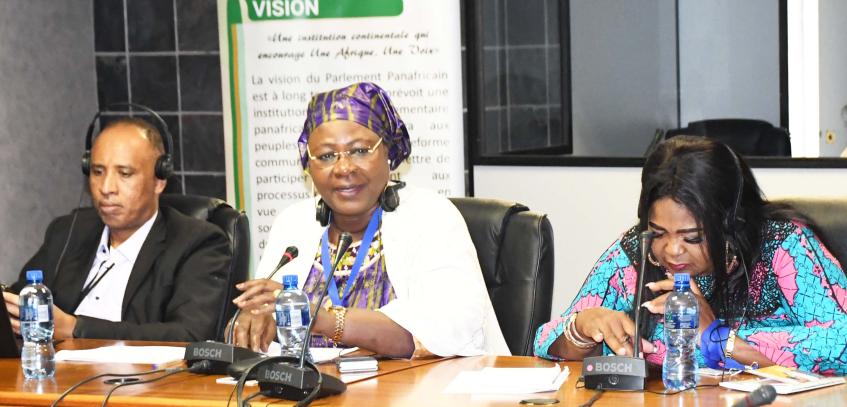The Pan African Parliament's Committee on Education, Culture, Tourism and Human Resources has received an appraisal on the Charter for African Cultural Renaissance.
The meeting also took time to discuss the revised African Union Plan of Action on Cultural and Creative Industries. The meeting took place at the ongoing Sitting of the PAP Committees taking place under the AU 2022 theme 'Building resilience in nutrition on the African continent: Accelerate the human capital, social and economic development.'
Ms Angela Martins, Head of Culture Division in the Department of Health, Humanitarian Affairs and Social Development Division of Culture said the Charter for African Cultural Renaissance aims to assert the dignity of African men and women as well as the popular foundations of their culture. The Charter also seeks to guide AU member states and Pan African cultural institutions working in the arts, culture, and heritage sectors. The Charter was adopted by the 6th AU Assembly in Khartoum, Sudan in 2006.
"There is a need to encourage cultural cooperation amongst the Member States with a view to strengthening African Unity through the use of African languages and promotion of intercultural dialogue," said Ms Angela Martins.
Professor Dr Vicensia Shule, Senior Cultural Officer in the AU Department of Health, Humanitarian Affairs and Social Development said the AU Plan of Action is a guide towards the development and strengthening of the African Cultural and Creative Industries taking cognizance of the benefits thereof:
"The AU recognizes the role of the Cultural and Creative Industries in engendering inclusive development, good governance, economic empowerment, poverty alleviation, job creation, trade and regional integration."
She added that the revised AU Plan of Action is based on stimulating economic growth, promoting social inclusion, cohesion, peacebuilding, and African integration.
The Chairperson of the PAP Education and Culture Committee, Hon Amina Abdou Souna welcomed the engagement but also acknowledged that there were huge challenges in the cultural sector.
"The challenge at hand is great but this engagement will allow those countries that do not have cultural policies to develop one and for those who have policies, can use the Charter to better their existing legislation. The major challenge we have in Africa is that when the colonialists came, we were brainwashed, and we downgraded our culture. I believe, we, therefore, must vigorously promote our cultures and indigenous languages because we learn better in our own languages. We need to use culture as a tool for sustainable development," said Hon Amina Abdou Souna.
-Ends-








